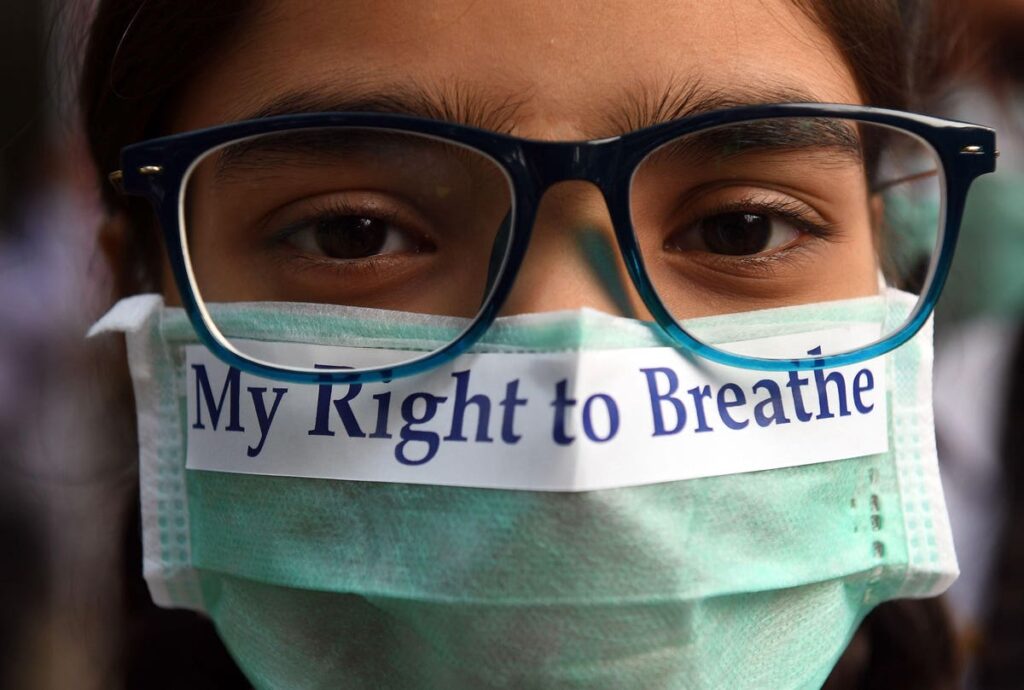TOPSHOT – An Indian youth wearing a pollution mask participates in a march to raise awareness of air … [+]
A large study that included 4,660,502 adults warns that people who have a prolonged history of being exposed to air pollution could be at a higher risk of developing serious Covid-19 symptoms that will require hospital admission or being treated in the intensive care unit (ICU).
Spain-based researchers found that residential exposure to nitrogen dioxide — which gets released in the lower atmosphere from vehicle emissions, power plants, and construction equipment — is especially dangerous. Nitrogen oxide was associated with a 42% increase in hospital admissions after being diagnosed with Covid-19. Whereas being exposed to fine particulate matter (PM2.5) was linked to a 19% higher increase in hospital admissions. Out of all the air pollutants the researchers analyzed, one in particular was linked to a 6% increase in Covid deaths: black carbon. The pollutant is produced naturally but it mostly gets emitted in the air from wood cook stoves, diesel engines, wildfires, and incomplete combustion of coal, oil, and gas.
The team used data from the Catalan public health system that includes Covid-19 surveillance data and hospital admissions and discharges. For gaining access to air pollution data, they tapped into Spanish monitoring networks and correlated that with the participants’ residential addresses. Out of all the participants, 340,608 people tested positive. Fourteen percent of them were admitted to the hospital. And another 1.4% were treated to an ICU. In total, 10,001 deaths were recorded in Catalonia, Spain, in 2020. The study’s population resided in both urban and rural areas with individual-level data for air pollution exposures.
“One of the strengths of our analysis is that the population is very well represented. The study covers both large urban conglomerations and rural areas and we were able to obtain detailed individual-level data on the participants’ exposure to ambient air pollution in a country heavily affected by the pandemic in 2020,” said Cathryn Tonne, a researcher from Barcelona Institute for Global Health and final author of the study.
The researchers hypothesized that one reason why air pollution exposure is linked to severe Covid-19 outcomes is because it increases people’s risks of developing co-morbidities like heart disease and hypertension. “It is well known that air pollutants, both particulate matter and gases, can impair lung defenses against infections,” the researchers noted in their study. “Exposure to air pollution may also be related to changes in immune defenses that are key to mitigating the coronavirus.”
“Our findings add further compelling evidence on the importance of reducing air pollution levels to improve population health generally and severe acute respiratory infection specifically,” they added. The study was published in Nature Communications on May 24, 2023.
The researchers further pointed out that finding an association between ozone pollution and severe Covid-19 outcomes was a lot harder to interpret as compared to other types of air pollution. But a limitation of the study is that it only evaluated the first year of the pandemic when there were no vaccines and variants of concern like Delta and Omicron.


